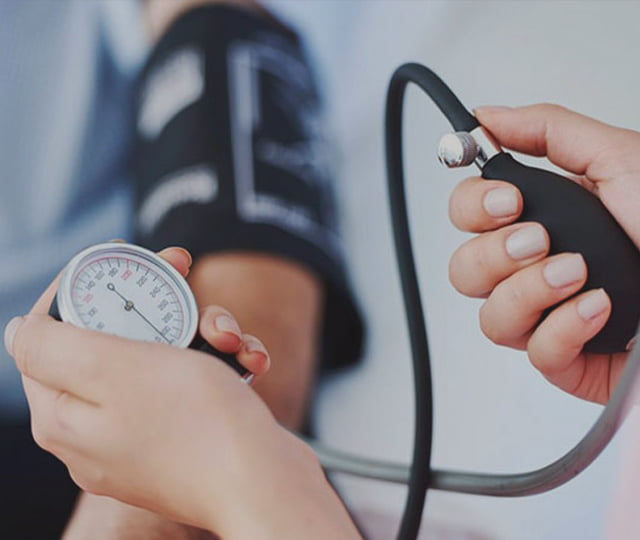Our primary care, New York City doctor schedules a medical clearance checkup or pre-surgical evaluation before planned surgery. During this evaluation, our NYC primary care doctors evaluate your overall health and make recommendations that will help lead to your surgery and recovery being as safe as possible. It may include diagnostic tests such as urinalysis/EKG/blood work or other evaluation depending on the specifics of your condition. Your physician will evaluate your situation and decide what testing is proper for you.
Studies have shown that a physical exam and evaluation before surgery can help shorten recovery times and lead to better outcomes.
If you are preparing for planned surgery under general anesthesia, it’s essential to have a preoperative evaluation. This evaluation aims to reduce the risk of surgery and ensure you recover as quickly as possible. Our experienced primary care physicians of Manhattan general healthcare can provide comprehensive preoperative assessments that will help to determine if you are fit for surgery.
The procedure for pre-surgical clearance will include:
- General health assessment
- Physical examination
- Laboratory tests
- Other examinations as needed
General Health Assessment
Initially, our physician will need to review your complete medical history and surgical history and your family’s medical history. They will also ask you about your social history: your use of tobacco and alcohol, any drugs, your history of allergies, and any current drug therapy and unusual reactions. Your medication use is particularly crucial.
You may need to discontinue using some drugs preoperatively because of the risk of interactions with medications used during anesthesia. We will ask if you have had any previous reactions associated with anesthesia or a family history of adverse reactions to anesthetics.
Your general health assessment is a comprehensive review designed to look for any signs of inadequately controlled chronic diseases or undiagnosed diseases. Diseases affecting the respiratory and cardiovascular systems are critical when assessing a person’s fitness for anesthesia and surgery.
”
★ ★ ★ ★ ★Was very to the point. Asked about history but dry. Definitely will go back. The nurses and rest of the staff are good from what I saw from the first visit.
Physical Examination
Your physical examination continues to build on the information gathered during your general health assessment. It will most likely include assessing your heart and lungs and your airway, documenting your vital signs.
If we detect any abnormal findings, we may order other tests to investigate these before your surgery.
Assessing Your Cardiovascular Risk
It’s essential to assess your heart health, including its functional capacity and the possible risks of surgery. Assessing your heart health is especially critical if you have had any heart problems.
Laboratory Tests

We may order specific laboratory tests based on your general health assessment and physical examination and the type of surgery required.
Lab tests typically ordered include:
- Complete blood count to check your kidney and liver function
- Urinalysis
- Fasting glucose test
- another testing as needed
We may order an electrocardiograph to assess your heart health and a chest radiograph to check the condition of your lungs.
Based on our findings, we might want you to visit other doctors. These may include a heart doctor or cardiologist if you have a history of heart problems, have high blood pressure or diabetes, or if you smoke heavily or are out of shape.
You may need to see a diabetes doctor if you have diabetes or your fasting glucose test identifies high blood sugar. People with sleep apnea might need to see a sleep doctor as this condition can cause pauses in breath during sleep. Anyone with a history of blood clots or close relatives who have had blood clots may need to see a hematologist specializing in blood disorders.
If you are relatively healthy and do not identify any risk factors, your assessment will likely be very straightforward, requiring very few tests. However, if your medical history is more complicated, we may need to order additional tests.
Our aim is to health ensure your surgical procedure is as safe and as smooth as possible. Overall, the general risk of surgery is very low for healthy people. Your physician will evaluate your situation and decide what testing is proper for you.
Our award-winning physicians and best doctors in Manhattan and New York’s Upper East Side look forward to meeting with you and discussing your needs.
Preoperative Clearance for Patients in NYC
Please make an appointment at our convenient locations in Midtown Manhattan or Upper East Side with our primary care physicians. Our general practitioners and internist doctors look forward to meeting you!
Manhattan Primary Care Locations: Manhattan Primary Care (Upper East Side) 983 Park Ave, Ste 1D22, New York 10028
(212) 389-9929 Manhattan Primary Care (Midtown) 56 W 45th St, Ste 808, New York, NY 10036
(212) 389-1887 Manhattan Primary Care (Union Square) 55 W 17th St, Ste 105, New York 10011
(212) 378-9987


